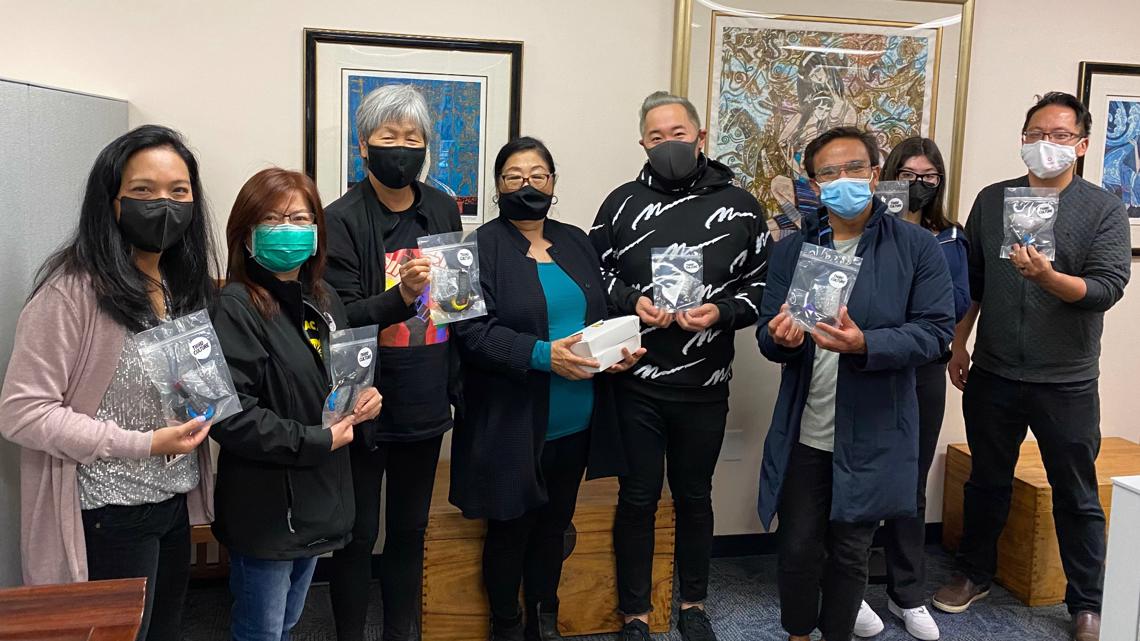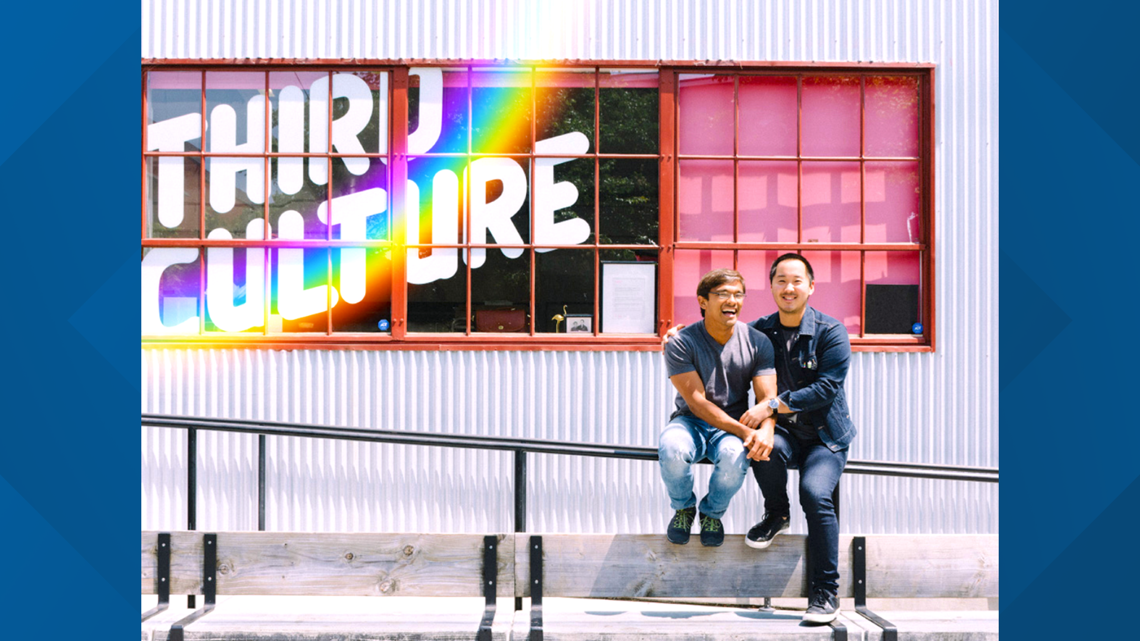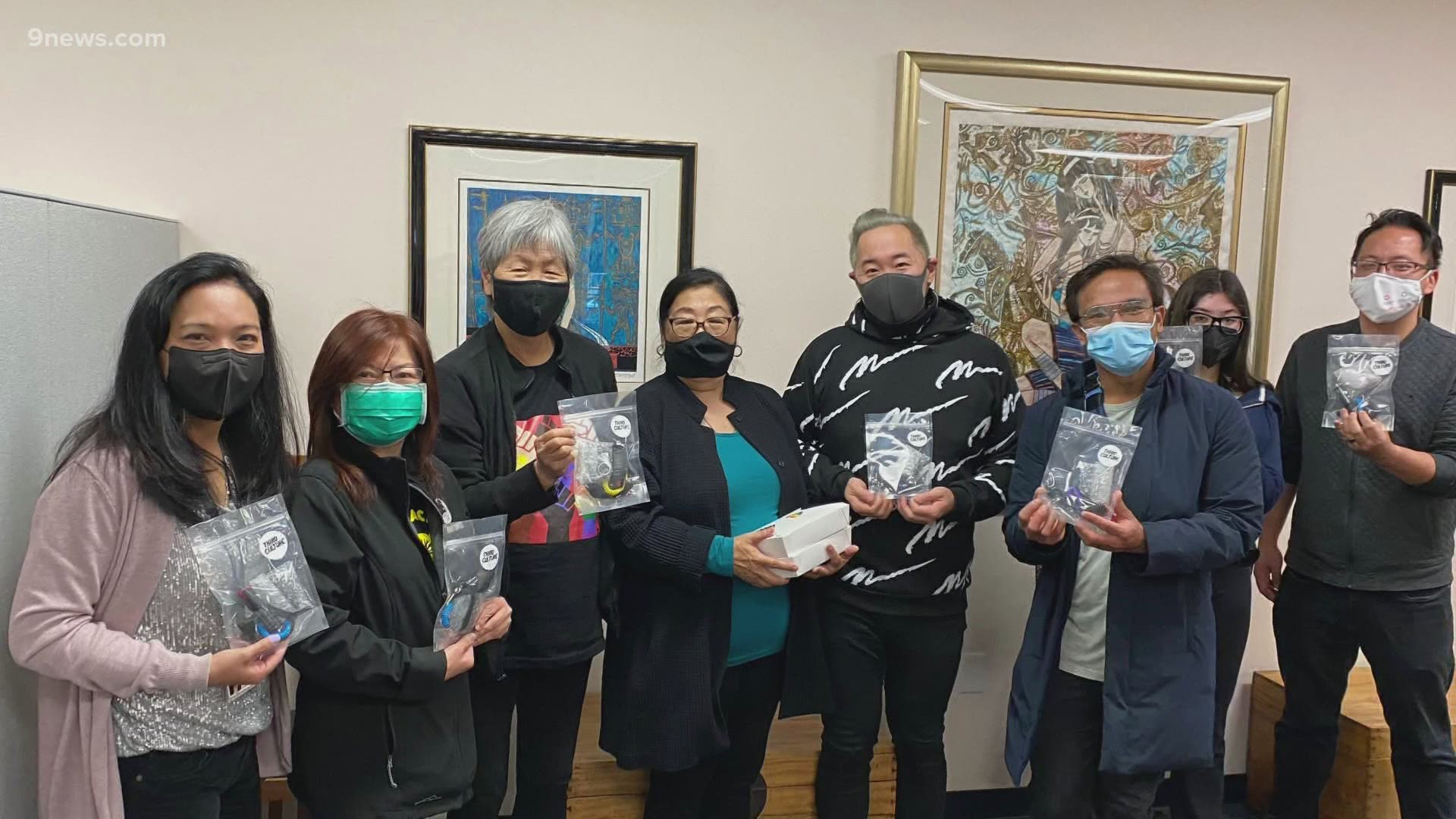COLORADO, USA — Running a bakery, making pastries and matcha-based drinks comes easy for Sam Butarbutar and Wenter Shyu. They've been doing it together since 2016 at Third Culture Bakery.
And standing up for underrepresented communities? They've been doing that for a long time, too.
After a recent increase in unprovoked hate crimes against Asian American and Pacific Islander (AAPI) communities, they didn't think twice about wanting to step in to help.
"We were feeling helpless, and we were donating to all the GoFundMe pages, but at the end of the day, we just felt like there just aren’t any concrete, physical actions that people were doing," said Butarbutar.
The two decided to create safety kits that include pepper spray, an alarm, and wrist and neck lanyards. They began by reaching out to elderly populations in California, where their bakery is headquartered, and asked if they would be interested in receiving a safety kit.
"Immediately, they told us yes, I want this for my kid, I want this for my uncle who just got attacked in New York City, and the stories just kept pouring in," said Butarbutar.


They originally thought they would donate 200-300 kits. In a short time, they received requests for more than 5,000. At $8 to make each kit, it came out to be a $40,000 project.
It's a need they are happy to fulfill and makes them wonder why it's not being done on a bigger scale.
"The fact that a bakery has to provide safety kits for our elders, it speaks volumes on what is missing in our leadership and our government and our community."
Butarbutar said he hopes to see a change in the next few months that will positively impact more than just AAPI communities.
"I really hope that whatever things we do to help our Asian community feel safer, whether it’s legislation or whether it’s things that they can carry, I hope that can translate into other community groups."
They've since reached their goal of completing 5,400 kits but are still working to create more advocacy groups in Colorado, California, and New York.
They are now putting together safety kits for vulnerable AAPI, Black, LatinX, and LGBTQ+ communities.
This effort is mostly donation-based; however, Butarbutar said they use anniversary and weekend sales from the bakery to match donations.
Donations can be made online.
The inspiration behind Third Culture Bakery:


The owners of Third Culture Bakery strive to make their locations in Colorado and California as inclusive and welcoming as possible while also giving people an opportunity to learn more about their cultures.
"We wanted to lead with more of the storytelling side of our upbringing and our experiences as gay, Asian bakers. I think that it immediately resonated with people," said Butarbutar.
Butarbutar was born in Indonesia but raised in New York. Shyu was born in Taiwan but raised in Los Angeles. Both say they grew up without a sense of belonging to one particular culture. "As they say, too white for the Asian crowd, too Asian for the white crowd," said Butarbutar.
The name of their bakery came after wanting to share their stories of being third-culture kids, meaning kids who grew up in a culture different from their parents.
"We wanted to create a space for LGBTQ individuals, for immigrants, people of color, third culture kids, and just to serve food where people can be whoever they like and accepted for whoever they are."
While the response from customers has been mostly supportive and encouraging, Shyu and Butarbutar say they are often met with people who don't support the LGBTQ community.
"There’s a big Indonesian community in Aurora, and they come from very conservative, very religious backgrounds," said Butarbutar. "When they start seeing rainbow stickers everywhere, they start confronting us and asking 'are we supporting gay people?' '
Butarbutar said they use these confrontations to help educate customers on their own backgrounds. He said the hope is always to humanize each other, despite their differing opinions.
"When it comes down to it, it's just people."
>> Read more about their story here
SUGGESTED VIDEOS: Latest from 9NEWS

